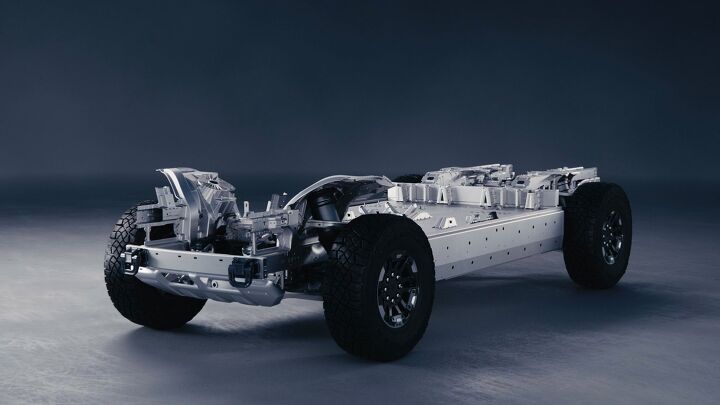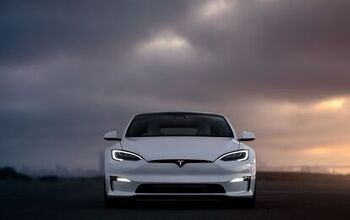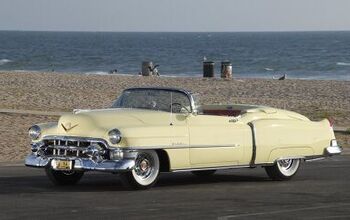GM Exploring Small Ultium-Based Electric Pickup

Despite what automakers and your fragile ego tell you, owning the largest full-size pickup you can find does not make you cooler or more interesting. However, it does make you more likely to be frustrated while parking and waiting in line at your third fuel stop of the week. Ford and Hyundai offer small-truck solutions with the Maverick and Santa Cruz, respectively, and now it’s General Motors’ turn.
GM revealed a small electric concept truck in a closed-door media session earlier this week. The automaker is heavily invested in EVs that people can actually afford and held the event at its “affordable EV design studio” in Warren, MI. Devoid of branding and logos, the truck will reportedly come with a mighty reasonable sub-$30,000 price tag.
The company plans to lean into customer feedback to refine the truck’s design. Chevy affordable EV and crossover design boss Michael Pevovar told Automotive News that the company is trying different things to see what works for customers and what doesn’t. For example, GM started with a bed length of 4- to 4.5 feet but is open to changing it. “The input may come back that it’s just too small, and that’s ok,” Pevovar told Auto News.
Thanks to the insanely flexible Ultium EV platform, General Motors can play around with the sizes and shapes of new models without starting from scratch each time. That saves time, but most of all, it saves money, allowing GM to hit the mythical $30,000 EV mark – at least on paper. The architecture underpins EVs of all sizes and shapes in GM’s catalog, including the GMC Hummer EV, Cadillac Lyriq, and the upcoming Chevrolet Equinox EV.
[Image: GM]
Become a TTAC insider. Get the latest news, features, TTAC takes, and everything else that gets to the truth about cars first by subscribing to our newsletter.

Chris grew up in, under, and around cars, but took the long way around to becoming an automotive writer. After a career in technology consulting and a trip through business school, Chris began writing about the automotive industry as a way to reconnect with his passion and get behind the wheel of a new car every week. He focuses on taking complex industry stories and making them digestible by any reader. Just don’t expect him to stay away from high-mileage Porsches.
More by Chris Teague
Latest Car Reviews
Read moreLatest Product Reviews
Read moreRecent Comments
- Lou_BC Well, I'd be impressed if this was in a ZR2. LOL
- Lou_BC This is my shocked face 😲 Hope formatting doesn't fook this up LOL
- Lou_BC Junior? Would that be a Beta Romeo?
- Lou_BC Gotta fix that formatting problem. What a pile of bullsh!t. Are longer posts costing TTAC money? FOOK
- Lou_BC 1.Honda: 6,334,825 vehicles potentially affected2.Ford: 6,152,6143.Kia America: 3,110,4474.Chrysler: 2,732,3985.General Motors: 2,021,0336.Nissan North America: 1,804,4437.Mercedes-Benz USA: 478,1738.Volkswagen Group of America: 453,7639.BMW of North America: 340,24910.Daimler Trucks North America: 261,959


































Comments
Join the conversation
Please offer a good 4wd system!
Note to automakers: Can you just figure out a way to make a simple pickup truck, defined as a cab on frame with a bed longer than the cab, capable of moving objects larger or LONGER than items normally able to be carried in cars? Is that really too complex to pull off?
Look up the word truck and go from there... please. Simple and durable. Tough and work ready.